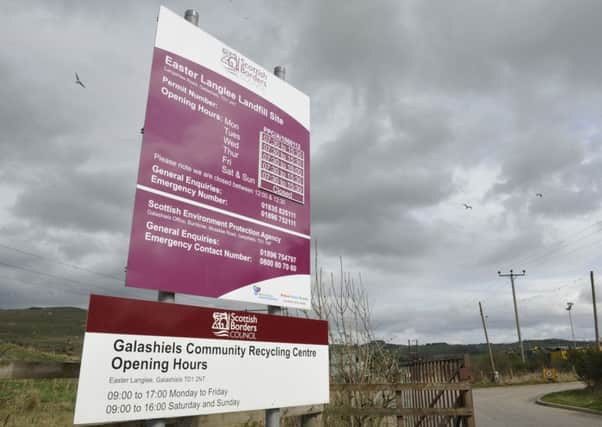Inquest into £2.4m write-off of Galashiels tip plans to remain secret


Scottish Information Commissioner Rosemary Agnew has concluded, after a six-month investigation, that the local authority is right not to divulge who said what during that post-mortem.
“Disclosure would not be in the public interest,” she says in her decision notice.
Advertisement
Hide AdAdvertisement
Hide AdThe council scrapped a 24-year, multi-million-pound deal with New Earth Solutions for the provision of an advanced thermal treatment plant at Easter Langlee, near Galashiels in February last year.
It later admitted it had already spent – and written off – £2.4m on the project – but offered an assurance to the Borders public that lessons would be learned from that debacle.
In March this year, retired Borders journalist Bill, of Jedburgh, used freedom of information legislation to ask the council to disclose what lessons had indeed been learned.
The council refused, telling Mr Chisholm: “The purpose of a lessons-learned workshop is to critically analyse and examine the project to highlight any things that could or should have been done better or differently or not at all or, indeed, to identify other approaches which could have been taken.
Advertisement
Hide AdAdvertisement
Hide Ad“This process will only be effective and worthwhile if those participating are free to be open and honest and the information can be properly recorded for internal purposes on that basis.
“If it is likely that the contents of that debate or discussion will be released into the public domain, it would inevitably lead to those people being restrained in their communication and the workshop’s effectiveness being significantly reduced as a result.
“The public interest in securing this free and frank internal communication outweighs any public interest in this particular information being released.”
Having been supplied with all the documentation denied to Mr Chisholm, Ms Agnew has backed the council’s stance.
Advertisement
Hide AdAdvertisement
Hide AdShe says it is important that authorities are not deterred from reviewing their actions and decisions – especially in situations that have ended badly – so the knowledge and experience gained can be utilised in future projects.
The disclosure of “frank discussions between officers about their own experiences” would not be in the public interest, she concludes, adding: “It would not add to public understanding of the council’s assessment of overall performance, as the discussions focus on personal experiences.
“Disclosure of this kind of information may well lead to the harm anticipated by the council as officers may not wish to contribute their thoughts so freely in future, even with their names redacted.”